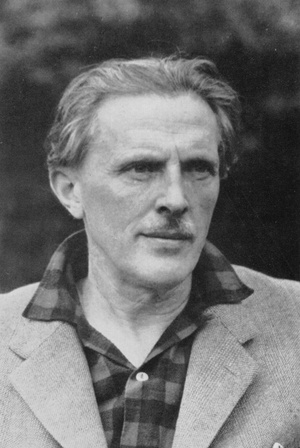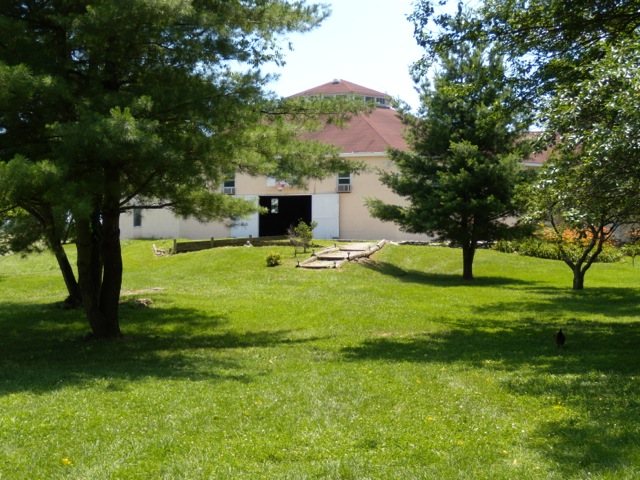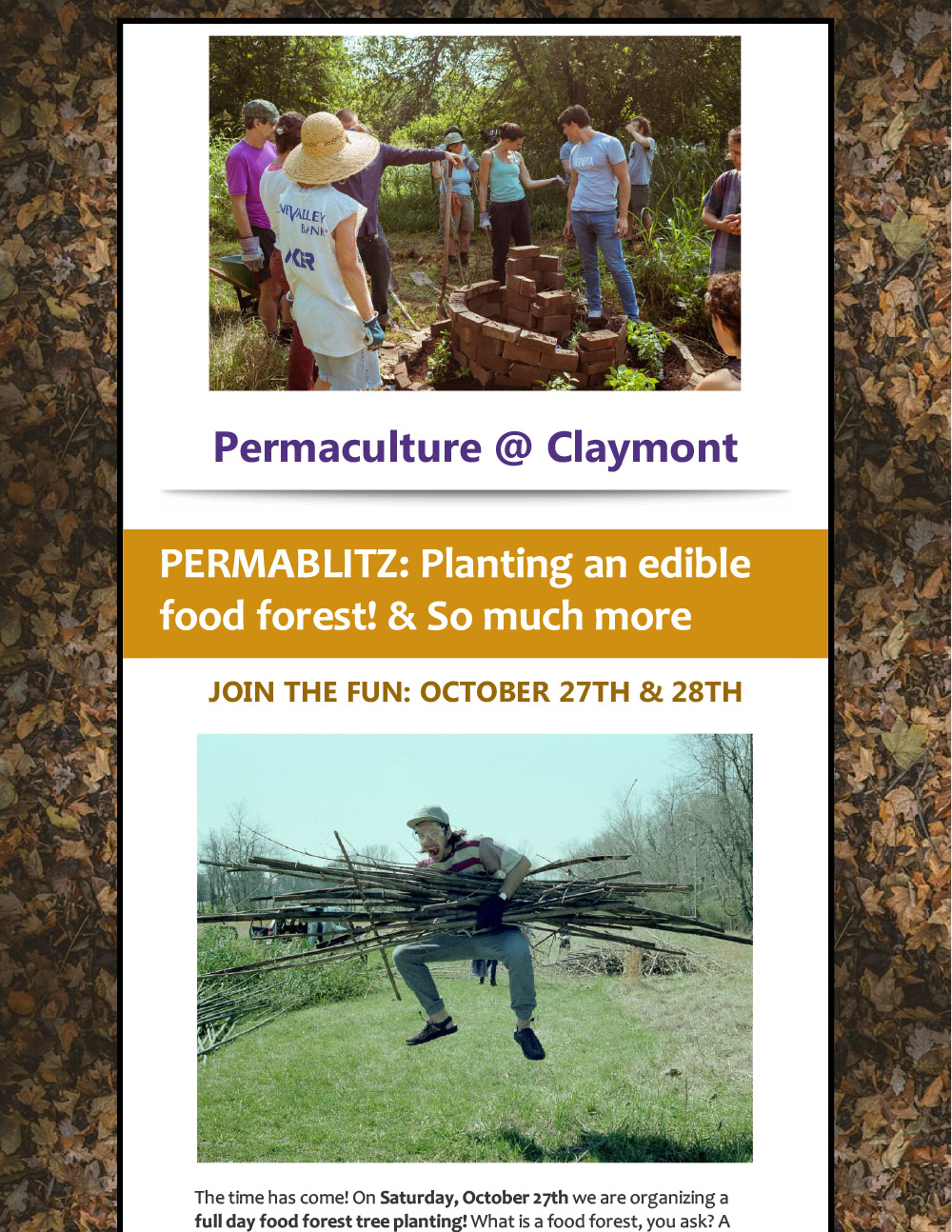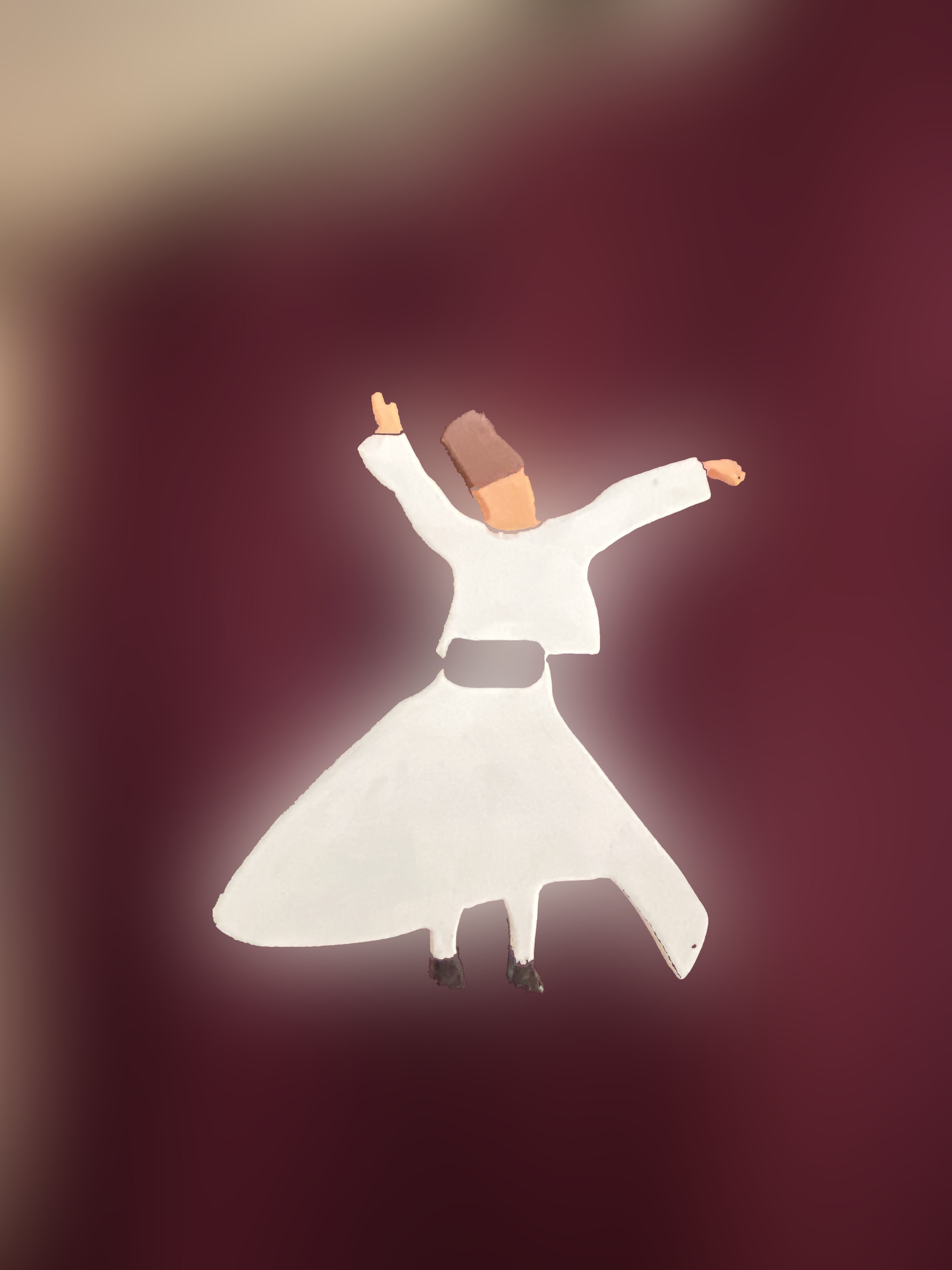A Brief History
The work here at Claymont is founded on J.G. Bennett’s “Call for a New Society.” Bennett envisioned a thriving and vital community that would change the way we looked at the world. By embracing the ideals of community, hard work, self-perfection, and committing to sustainable existence Bennett foresaw that our society would be transformed.
At Claymont we strive to continue Bennett’s vision through financially stable business, environmentally sound food production, locally supported crafts, sustainable land & resource management, as well as intermediate technology. Claymont is open to all those who are interested in being part of a community with a shared ideological foundation. By being a part of Claymont you will learn more about Bennett’s ideals of self-perfection, integrated and sustainable agriculture, food production/craft production, Claymont Court Seminars management, historical restoration & maintenance, and much more.

John. G. Bennett
The Claymont Society for Continuous Education was founded in 1974 by J.G. Bennett (pictured right). Unfortunately Mr. Bennett passed from this world in December, only a short time after Claymont was purchased. Mr. Bennett’s vision was continued by Director of Studies, Pierre Elliot. Mr. Elliot was assisted in these efforts by Manfred Blum. Today, Claymont continues in the tradition of Mr. Bennett through physical, mental, and spiritual education. Community members work in our sustainable garden, educate themselves and their community, and work to support the Claymont Society businesses.
Claymont Vision
It is our aim to serve the world both through work on ourselves and through outer service. We wish to create an educational environment that teaches an understanding of conscious awareness, the synergy created by unconditional love, and living a sustainable lifestyle. This includes practicing organic farming and doing research into ecology, agriculture, and energies. Central to all aspects of our mission is the development of a workable and sustainable community where people interact in a spirit of cooperation.
The Claymont Society for Continuous Education is both a non-profit educational organization and a community. Continuous education implies that by increasing the depth of our awareness and understanding we can be more fully connected to our environment, each other, and our own deeper nature, as well as living fully satisfying and meaningful lives. There are skills, concepts, and values that must be learned before we can shift from a self-centered existence to one that takes into consideration nature and our fellow humans
The Claymont Society aims to offer a variety of educational means that enable this shift. We have classes and projects that demonstrate the skills required for sustainable living. We have on-going study groups and programs that aim to increase our capacity for attention, patience, consciousness, and love, which all lead to increased being and a true sense of community. We strive to have all programs have an educational component. For example the agriculture program is an opportunity to give interns a chance to learn organic gardening skills.
We have seminars, retreats, conferences, an organic garden, and various other programs that promote the goals of sustainability and continuous education. Those who work on and support these projects form the Claymont Community. Claymont aims at using the synergy of a diverse group of people engaged in a diverse set of projects to cooperate to form one well functioning organism that serves the aim of continuous education and also maintains the facilities and assets of the Claymont Society. The Claymont Society hosts like-minded groups who use our facilities for seminars and retreats that promote their own approaches to sustainable living and inner development. All of these programs have education as their common thread and are inter-dependent.

Claymont Mission
Through continuous education that supports diverse spiritual practice in daily life, we seek to promote the balanced and harmonious development of people, community, and the broader world. We build on the foundation established by J.G. Bennett and his teachers. – June 29, 2014

A Call for a New Society
Mr. Bennett wrote “A Call For A New Society” in 1974.
It is as true today as it was then, and even more important as the world reaches its limits in population,
food supply, and global crisis. Included below are selected readings from the Call. You can read the entire text here.
If you have questions or would like more information on Mr. Bennett,
please don’t hesitate to contact us.
A Statement from the Board:
The world was a very different place when Mr. Bennett wrote the following in 1974. Those early years saw hundreds of people attending extended format classes for several weeks at a time. Many families lived on Claymont, working toward the Vision of a New Society. Over the years there have been many cottage industries, including a printing company, and experiments with many different agricultural projects were conducted.
In the intervening years between then and now the fortunes of Claymont have risen and fallen several times. So, too, have many elements of Mr. Bennett’s vision, coming into existence, flowering and bearing fruit, and then fading away when the season for them passed.
Today Claymont still stands, holding up the vision of a place where people can come for Continuous Education through the Seminar Business, in the Fourth Way, and in many ways that have values congruent with Claymont’s. Claymont remains a place where organic agriculture and conservation are practiced assiduously and residents and Society Members remain dedicated to working on ourselves and to The Work as passed to us by Mr. Bennett and Mr. Gurdjieff.
– CSCE Board of Directors
Continuous Education is founded on the principle that human beings are capable of unlimited self-perfecting from birth to death and beyond. Self-perfecting is three- fold: bodily, mental and spiritual. It gives meaning to our lives as individuals; but there is also a continuous education of the human race to enable us to become truly human — which we are still pretty far from being.
Progress in self-perfecting is not automatic; it requires use of the right methods and the determination to persevere against all discouragement. Very few people can achieve it alone; and, for this reason, ‘Schools of Wisdom’ have existed from time immemorial to provide instruction and to create environments in which all can contribute to the common aim. Although such schools have always been present they are little in evidence except in times of crisis and-change, when they extend their activities to enable more people to prepare themselves for the task ahead.
We are now in such a period, and more and more people are looking for methods and guidance to help them with their own problems. They wish to be of service, but can see only too plainly that things have gone wrong for lack of ‘know-how’ and are afraid of doing harm where they mean to do good. Sensible people are acutely aware that something has gone wrong with humanity. Our present society, based on great institutions that control economic resources and political power, tends to strengthen the materialistic and egoistic sides of human nature, We need a new kind of society in which-concern for needs of others and of Nature as a whole will predominate over self-interest and fear. One obvious need for such a society is to change our eating habits so that the whole world can be kept from starvation. We need to be more self-sufficient and less dependent upon vast inhuman organizations.

All agree that the world is facing a food crisis, though few admit its true gravity. The artificial stimulation of agriculture by mechanisation and synthetic fertilisers is impoverishing the soil. There is another scarcely noticed effect: work on the land has lost its charm and become intolerably dull. There is in developed and undeveloped countries alike a flight from the land that cannot be reversed unless life on the land is made exciting and rewarding as it was in ancient times. It is useless to call for more effort to produce food and deny the producers a worth-while life. It is typical of great institutions to ignore the human factor. Unfortunately, even in small societies, concern for the general welfare is paid lip-service rather than readiness to make the sacrifices that are needed.
Unfortunately, concern for others can be translated into effective action only by those who are working for their own self-perfecting. Only people who sincerely wish to give rather than take, to overcome their own weaknesses rather than exploit the weaknesses of others, can create a society that will survive in the hard times ahead. The hard times are themselves a necessary factor in self-perfecting. This is one reason why schools of wisdom can become active when mankind is approaching a time of crisis. The task ahead is now very clear. We must demonstrate that communities engaged in food production can provide a really good way of life. This calls for a new kind of society. We believe it can be created from small beginnings.
The task is to create a community that will be able to maintain itself under difficult economic and social conditions. For this, it must produce the main necessities of life: food, shelter, clothing, recreation, and as the foundation of it all, a shared spiritual quest for self- perfecting. This announces the creation of a new society, sponsored by The Institute of Comparative Study of History, Philosophy and the Sciences Ltd. of London, England. This was incorporated in 1946 to do research into the factors that make for progress and retrogression in human individuals and societies. It has investigated most of the psychological, religious and spiritual movements of our time and also the traditional methods preserved in the Schools of Wisdom. It has, in the course of twenty-eight years, developed and tested a unique system for training men and women in the way of self-perfecting. This has been applied at the International Academy for Continuous Education established four years ago at Sherborne House in England. The success of the method has led to a demand for similar facilities in the USA.
To meet the demand, the CLAYMONT SOCIETY FOR CONTINUOUS EDUCATION is being incorporated-in the State of West Virginia. It is intended to go far beyond the basic training now available at Sherborne. The task will be to create, within-three to five years, a fully integrated society, the members of which will be committed to self-perfecting and to service to Nature and their fellow-men. To meet the needs of the present crisis in human affairs, the Claymont Society will make itself largely self-sufficient in the provision of food, shelter, clothing and other necessities of life. It will do so partly by intensive food production and partly by the adoption of a system of diet that enables the requirements of the human organism to be satisfied with the minimum consumption of foodstuffs in short supply such as animal proteins.
The chief problem in any community is to achieve unity of purpose and harmony among people of different temperament and cultural background. It is above all essential to eliminate the conflicts that come from desire for power of some and the laziness and self-indulgence of others. This can be achieved only if there is a right balance between people at different stages of self- perfecting.
The long-term aim of the Society is to demonstrate that a viable social structure can be founded upon the principle of continuous education. Claymont Court is large enough and has sufficiently varied resources to enable a model society to be established embodying all the main activities required for self-sufficiency and a harmonious and creative life.
The term ‘Fourth Way School’ was used by Gurdjieff to distinguish the type of society we are creating at Claymont. It has also been called by Bennett in his Dramatic Universe, a ‘Psychokinetic Society’, to indicate that its members believe in human perfectibility. A school of the Fourth Way exists solely to carry out an allotted task and to train people for this purposes. The task at Claymont is to demonstrate that a predominately food producing society can enjoy fully satisfying conditions of life on all planes: physical, intellectual and spiritual.
Our Practice
Claymont is a community centered around spirituality and work on oneself, in particular work on oneself in accordance with the principles of Mr. J.G. Bennett and his teachers.
This is our practice
I expect these behaviors of myself.
We expect these behaviors of ourselves and others.
I expect others to honor their commitments:
to ourselves as individuals, to each other as a community, and to the Greater Good and all Creation.
We expect that we shall work on ourselves. To this end:
We will work in order to provide materially for ourselves and others.
We will work to become better human beings.
We will work to understand how to work with others,
and understand how work with others helps us understand and experience how the world works.
We will work to fulfill our obligations; to ourselves, each other, and the larger world.
We will work to help each other, considering our Individual and Collective Spiritual Evolution, leading to a greater alignment with the Divine.
In order to assist in these efforts each of us will have an Aim for our Inner work. It is understood that our Aim may change as our understanding of our Spiritual Work changes and deepens, and that our specific Work may change.
We will work on increasing our conscious awareness of our sensations, feelings, and thinking, developing greater presence by our work and receptivity to Sacred Influences.
We will use this increased awareness to work against egoism and to discern how emotional negativity and useless physical tension consume our energy. These distract us from work on our aim, and we will work for release from these.
We expect that we will work to develop greater Consciousness,
and greater awareness of Conscience.
Specifically, to attain these aims we expect each other to maintain a daily practice. Examples may include:
A daily sitting, daily mindfulness of breath, daily active inner practices, and daily reflection on our work.
Participation in groups, Movements work, Inner Work meetings.
Work Weekends, and other CSCE events as possible, as well as other spiritual practices.
Read books on the Fourth Way, including books written by Bennett and his Teachers.
